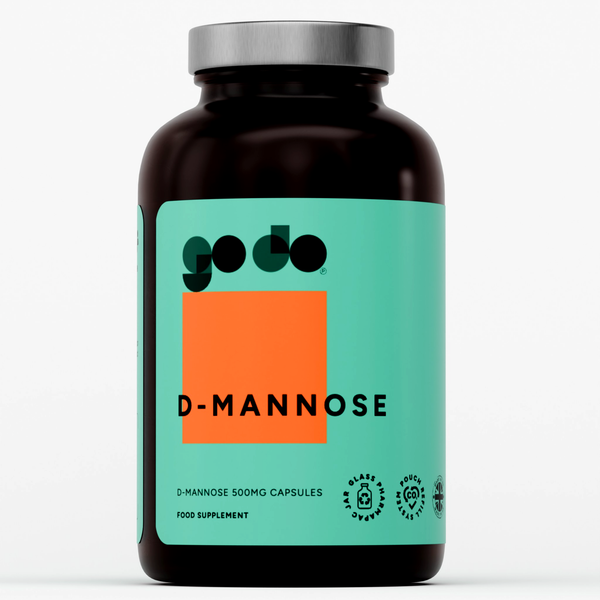It's imperative to prioritize your prostate health, especially as you age. Understanding the signs of a healthy and how do you know if your prostate is healthy, can help you take proactive steps to maintain it. From maintaining a healthy weight and being physically active to eating the right foods and getting regular check-ups, there are various ways to ensure your prostate stays healthy. Learn about the signs that indicate a healthy prostate and how to address any potential issues in their earliest stages to promote overall wellness.

The Importance of Prostate Health
Common Prostate Problems
Prostate: Problems with the prostate, such as Benign Prostatic Hyperplasia (BPH), Prostate Cancer, and Prostatitis, are common in men over 50. It is crucial to be aware of these conditions to maintain a healthy prostate.
Benign Prostatic Hyperplasia (BPH)
Common: Benign prostatic hyperplasia, or BPH, is a prevalent disorder in older men that causes the prostate to enlarge. While not linked to prostate cancer, it shares similar symptoms necessitating attention and proper management.
With no increased risk of prostate cancer, BPH can still impact quality of life. It's crucial to understand how to differentiate BPH symptoms from other prostate conditions, highlighting the importance of early detection and treatment.

Prostate Cancer
Prostate: Prostate cancer is a slow-growing disease that develops when prostate cells multiply uncontrollably, invading surrounding tissues. Early detection of prostate cancers through regular screenings is crucial for effective treatment and managing potential risks associated with this condition.
Prostate cancer often shows no symptoms initially, underscoring the importance of proactive measures such as regular screenings to detect any abnormalities early.
Prostatitis
Prostatitis refers to inflammation of the prostate and glandular tissue, sometimes caused by bacterial infection. Acute bacterial prostatitis is a specific type characterized by sudden onset, severe symptoms like fever, chills, and pelvic pain, and requires immediate medical attention. Asymptomatic inflammatory prostatitis, on the other hand, doesn't cause symptoms but is detected through testing for other conditions such as infertility or prostate cancer.
Chronic bacterial prostatitis is another type, with symptoms similar to acute bacterial prostatitis but less severe, often recurring or worsening slowly over several months, and typically treated with antibiotics and other modalities.
Cancer is a critical concern when experiencing prostatitis symptoms, underscoring the importance of consulting a healthcare professional for a proper diagnosis and management plan.
How Do You Know If Your Prostate Is Healthy: Key Takeaways
Regular Prostate Screenings: Annual prostate exams are vital for early detection of any potential prostate problems.
Healthy Lifestyle Habits: Maintaining a healthy weight, staying physically active, eating a balanced diet, and avoiding smoking can contribute to a healthy prostate.
Watch for Symptoms: Be aware of symptoms such as frequent urination, pain during urination, blood in urine or semen, and seek medical attention if you experience any of these.
Signs of a Healthy Prostate
Being a Healthy Weight
The importance of maintaining a healthy weight cannot be overstated. Being overweight or leading a sedentary lifestyle can obstruct blood flow and increase the risk of aggressive prostate cancer and erectile problems.
Keeping Physically Active
With regular exercise, you can improve blood flow to your muscles, including the prostate. Just a few hours of exercise a week can show significant benefits in maintaining good prostate health, preventing enlargement, and reducing risks.
Plus, physical activity may also help prevent prostate disorders from worsening over time.

Right Screenings
A digital rectal exam is a common method used to check the size, shape, and firmness of the prostate. During this exam, the doctor can feel for any lumps or abnormalities that might indicate a problem. This is an important part of assessing prostate health and can help detect issues early, including high PSA levels which may suggest a risk of prostate cancer.
Healthy Ultrasound Results
Now, during prostate screenings, an ultrasound may be carried out to check the overall health of your prostate. Sound waves help create an accurate image of the prostate. If there are no obvious abnormalities, this can suggest that your prostate gland is in good health.
Normal Biopsy
An annual prostate exam is the most effective way to detect early signs of prostate problems. An important part of this exam is a biopsy, which involves collecting a very small sample of prostate tissue from your prostate gland via a needle to check for abnormalities. If the biopsy is normal, your prostate is considered healthy.
Symptoms of Prostate Problems
Urination Issues
Noticing changes in your urination pattern can be a sign of prostate issues. An increased urge to urinate, especially at night, pain or burning during urination, or difficulty starting or stopping urination are all potential symptoms to be aware of.
Pain or Discomfort
An important symptom to watch for is pain or discomfort in the pelvic area, lower back, hips, or thighs. Chronic pelvic pain syndrome, a potential cause of pelvic pain, can be treated with various modalities such as medications, physical therapy, psychotherapy, nerve modulators, and surgery. Plus, experiencing pain during ejaculation or blood in urine or semen should not be ignored.
Prostate discomfort or pain can indicate inflammation or infection in the prostate gland, while blood in urine or semen may signify more serious conditions such as infection, inflammation, or even prostate cancer.
Blood in Urine or Semen
Prostate health concerns may also manifest as the presence of blood in your urine or semen. Do not forget, this is a significant indication that prostate fluid requires immediate medical attention.
A urologist should investigate and determine the underlying cause, as blood in urine or semen can sometimes be a symptom of infection, inflammation, or, in severe cases, prostate cancer.
Difficulty Starting Urination
With age, you may experience difficulty starting urination. This could indicate a problem with your prostate. It is important to discuss this symptom with your healthcare provider for proper diagnosis and treatment.
To rule out any potential prostate-related issues, your healthcare provider may recommend further tests or examinations to determine the underlying cause of the difficulty in starting urination.
Straining when Urinating
With prostate issues, you might find yourself straining during urination. This could indicate an obstruction or an enlarged prostate gland. It is necessary to address this symptom promptly to the urinary symptoms and prevent any complications.
The sensation of straining while urinating could suggest an obstructed urinary flow, possibly due to prostate enlargement or other prostate-related issues. Consult with your healthcare provider for appropriate evaluation and management.
Dribbling at the End of Urination
Prostate health concerns may also manifest as dribbling at the end of urination. Ensure you pay attention to this symptom, as it could indicate underlying prostate issues.
Another common issue associated with prostate problems is dribbling at the end of urination. This symptom might be due to incomplete emptying of the bladder or other prostate-related conditions. Seeking medical advice is crucial in addressing this concern effectively.
Frequent Pain or Stiffness in the Lower Back, Pelvis, Hips, Rectal Area, or Upper Thighs
Despite your best efforts to maintain a healthy lifestyle and keep your prostate in check, it's important to pay attention to any signs that may indicate a potential problem. One such sign to watch out for is frequent pain or stiffness in the lower back, pelvis, hips, rectal area, or upper thighs. These symptoms can sometimes be indicative of prostate issues that require attention.
According to the article, experiencing frequent pain or stiffness in these areas could be a red flag for a prostate problem. Prostate disorders, such as prostatitis or enlarged prostate, can sometimes manifest as discomfort in the lower back, pelvis, hips, rectal area, or upper thighs. It's crucial not to ignore these symptoms and seek medical advice promptly to address any underlying issues.
If you find yourself experiencing persistent or worsening pain or stiffness in these regions, it's recommended to consult with a healthcare professional, particularly a urologist who specializes in prostate health. Early detection and timely intervention can make a significant difference in managing prostate disorders and maintaining your overall health and well-being.

Maintaining Prostate Health
Annual Prostate Exams
Many experts recommend that men over the age of 50 should undergo an annual prostate exam, which includes prostate cancer screening, to ensure the health of their prostate gland. This exam can help detect any potential issues early on and allow for timely treatment if needed.
Healthy Lifestyle Choices
On top of annual exams, adopting healthy lifestyle choices can significantly contribute to keeping your prostate in good shape. Regular exercise, a balanced diet rich in nutrients beneficial for prostate health, and avoiding habits like smoking can all play a crucial role in maintaining a healthy prostate. The prostate contributes prostatic fluid to semen, which contains components that make semen an ideal substance for sperm cells to live in, helping the sperm travel down the urethra and survive the journey towards an egg, which is essential for reproduction.
Prostate health can also be supported by staying physically active. Ensure you maintain a healthy weight to reduce the risk of either prostate cancer develops other issues. Conversely, leading a sedentary lifestyle and being overweight can increase the risk of developing prostate cancer and other related problems.
Reducing Risk Factors
Health experts suggest that certain factors, such as being overweight or smoking, can increase the risk of prostate issues. By making conscious efforts to maintain a healthy weight, engage in regular physical activity, and avoid smoking, you can reduce your risk of prostate disorders.
- Consider incorporating more zinc and selenium-rich foods in your diet to support prostate health.
- Regular prostate screenings are crucial for early detection and treatment if needed.
This proactive approach can help you keep your prostate healthy and reduce the likelihood of developing prostate problems in the future.
Prostate Health in Phoenix, AZ
Once again, maintaining a healthy prostate is crucial for overall well-being. If you are in Phoenix, AZ, consider visiting Ironwood Urology for expert care and services focused on men's health, including prostate screenings and prostate treatment alone.
Ironwood Urology Services
On top of regular prostate screenings, Ironwood Urology offers a range of services such as vasectomy, vasectomy reversal, male infertility treatment, erectile dysfunction solutions, and more. Dr. Avila and his experienced team are dedicated to providing comprehensive care for men's health.
Scheduling a Prostate Screening Exam
The best way to ensure your prostate health is to schedule a prostate screening exam. The experienced urologists at Ironwood Urology in Phoenix, AZ, can guide you through the process and help you understand the importance of early detection and preventive measures.
It is important to prioritize your prostate health by scheduling regular screenings and seeking medical advice if you notice any symptoms of prostate problems. Contact Ironwood Urology today to take proactive steps towards maintaining a healthy prostate.

Additional Resources
Patient Education Materials
Keep yourself informed about urological conditions and treatments by browsing our online library of patient education materials. Learn more about specific urology topics to stay proactive about your health.
Urology Conditions and Treatments
To further understand urological conditions and treatments, explore our comprehensive resources that cover a range of topics such as common cancer such as prostate health, erectile dysfunction, and male infertility. Stay knowledgeable about potential issues that may affect your urological health.
Another valuable resource available is scheduling a prostate screening exam at Ironwood Urology. With experienced urologists specializing in men's health, you can ensure early detection of any prostate problems and receive the necessary treatment and care.
Final Words
Following this comprehensive guide on signs of a healthy prostate, you can stay informed and proactive about your prostate health. Remember to maintain a healthy weight, exercise regularly, eat a balanced and healthy diet often, avoid smoking, and stay sexually active. Regular prostate screenings and exams are crucial in detecting any potential issues early on. By prioritizing your prostate health, you can take control of your well-being and reduce the risk of developing serious prostate problems.
FAQ
Q: What are some signs that my prostate is healthy?
A: Signs that your prostate is healthy include being a healthy weight, staying physically active, eating a balanced diet rich in nutrients like zinc and selenium, not smoking, maintaining a healthy sex life, having normal PSA levels, getting regular prostate screenings, having a normal feeling prostate during exams, receiving healthy ultrasound results, and having a normal prostate biopsy if necessary.
Q: How can I keep my prostate healthy?
A: To keep your prostate healthy, it's important to maintain a healthy weight, engage in regular physical activity, consume a diet rich in nutrients beneficial for prostate health, avoid smoking, have a healthy sex life, monitor PSA levels, undergo regular prostate screenings, pay attention to how your prostate feels during exams, ensure healthy ultrasound results if needed, and have a normal prostate biopsy if indicated.
Q: What are some symptoms of prostate problems?
A: Symptoms of prostate problems include a frequent urge to urinate, nocturia or increased need to urinate at night, pain or burning during urination, pain during ejaculation, presence of blood in urine or semen, difficulty starting urination, straining while urinating, dribbling at the end of urination, weak or intermittent urine stream, sensation of incomplete bladder emptying, and frequent pain or stiffness in the lower back, pelvis, hips, rectal area, or upper thighs.




































































